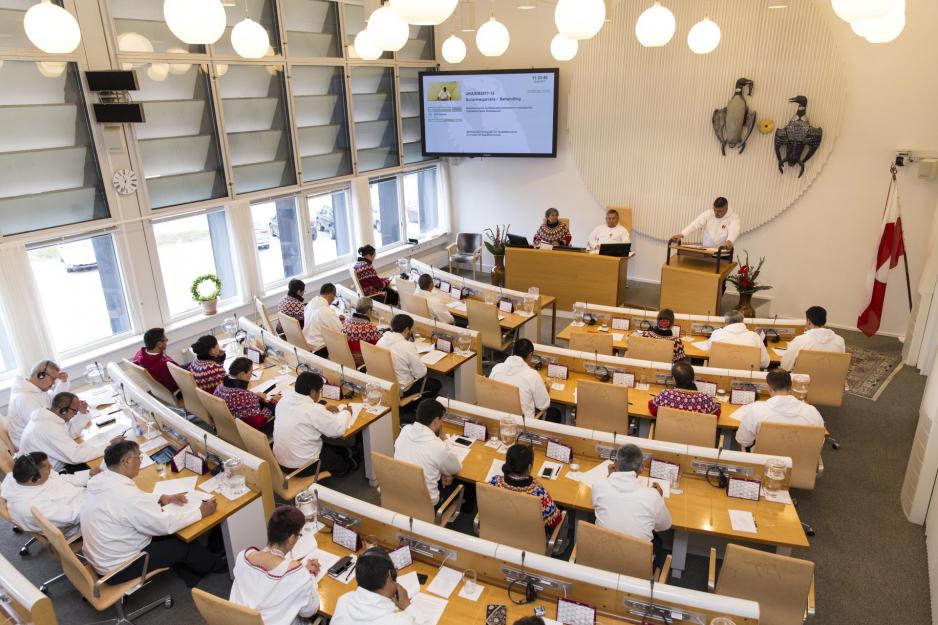Greenland’s premier narrowly avoids a no-confidence vote
A no-confidence motion on Kim Kielsen, who faces persistent conflict of interest charges, was averted by a single vote.

Greenland’s political watchers will have noted that it was only fitting that it was Aleqa Hammond, an outspoken former premier, who did the honors when the time came to let Kim Kielsen the current premier, off the hook. (For now, at least.)
Kielsen was Hammond’s lieutenant when she, in 2014, was forced out as premier and leader of Siumut, Greenland’s dominant political party. Wildly popular even when in bad political standing, she later threw her support behind Kielsen when the time came to pick a new party leader; he has led the party and the country ever since.
Kielsen’s term as premier has never been pretty — coalitions, including one that included Siumut’s archrival, have come and gone; dissent within Siumut smolders constantly — but, since July, the premier has been dogged by allegations of conflict of interest that, on Thursday, culminated in a motion in Inatsisartut, the national assembly, to hold a vote of no confidence against him.
[Greenlandic premier avoids election, despite failing to secure majority]
Kielsen, who, in 2018, failed to give a clear answer in an official statement about whether he still holds a commercial hunting and fishing license, found himself facing allegations of conflict of interest earlier this year when it emerged that he rented a fishing boat to a close friend just two weeks before the national assembly voted this spring, amidst heated debate, to raise the amount of lumpfish roe fishermen could land this year.
The opposition, which brought the situation to light, believes Kielsen should have excused himself from the deliberations, or at least made his fellow lawmakers aware of his side dealings.
The vote never came to pass.
Hammond, who has since switched parties, took to the rostrum to assure the assembly that Kielsen had the votes of a majority of legislators.
“It is not time for an election,” she told the assembly. But, with continued uncertainty about whether the premier did, indeed, act in his own interest, the case is not closed entirely.
[In Greenland, voters hope election is nothing fishy]
This is due in part to concerns that the first of two investigations into the matter may have come to the conclusion that Naalakkersuisut, the administration, wanted it to. A second investigation, this one conducted by Inatsisartut and delivered on September 7, criticized the first investigation for being ordered by Naalakkersuisut. It also noted that the administration had not granted Inatsisartut investigators access to all of the documentation relating to the matter, including the administration’s instructions to the lawyer conducting the investigation.
The move to quash the no-confidence vote passed by a 14-13 margin; the missing votes included two legislators who were not present and two abstentions, both by Siumut legislators, who said their support for the premier hinged on the contents of the documents.
Hammond recommended that the premier would be wise to address the deficiency, but, in the same breath, she made it clear that Kielsen’s allies would not let him down.
“A majority still has confidence in the premier, and they are committed to finding a way to resolve the legal dispute between Inatsisartut and Naalakkersuisut,” she said.